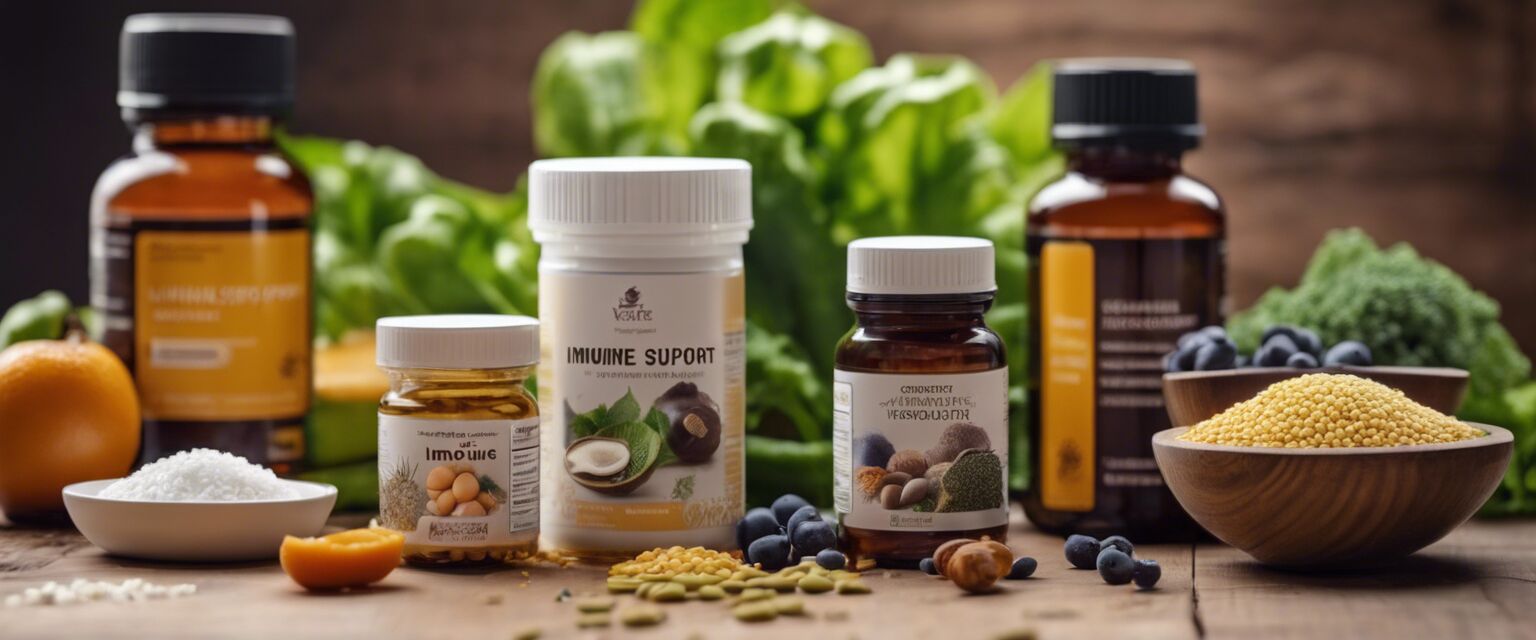
Supplements for cold and flu prevention
Key Takeaways
- Cold and flu symptoms can be alleviated with the right supplements.
- Common supplements include vitamins, minerals, and herbal extracts.
- Always consult with a healthcare provider before starting any supplement regimen.
- Dietary supplements can support your immune system but should not replace a balanced diet.
As the seasons change, many individuals find themselves susceptible to colds and flu. While maintaining a healthy lifestyle is crucial, certain supplements can provide additional support for your immune system. This article explores various supplements that may help prevent cold and flu symptoms and discusses how they can contribute to overall health.
Understanding the Immune System
The immune system is our body's defense against infections, including cold and flu viruses. It consists of various cells, tissues, and organs that work together to protect the body. A strong immune system can help reduce the incidence and severity of illnesses.
Popular Supplements for Cold and Flu Prevention
| Supplement | Description | Potential Benefits |
|---|---|---|
| Vitamin C | A water-soluble vitamin found in fruits and vegetables. | May help boost immune function and reduce the duration of cold symptoms. |
| Zinc | An essential mineral involved in immune function. | May help reduce the severity of cold symptoms when taken early. |
| Elderberry | A fruit extract known for its antioxidant properties. | May help support immune health and alleviate cold symptoms. |
| Vitamin D | A fat-soluble vitamin that plays a role in immune response. | May support overall immune health and reduce respiratory infections. |
| Probiotics | Live bacteria that promote gut health. | May help enhance immune function by supporting gut health. |
Vitamin C
Vitamin C is a well-known antioxidant that can support immune function. It helps in producing white blood cells, which are crucial for fighting infections. Foods rich in vitamin C include oranges, strawberries, and bell peppers. For those who find it challenging to meet their daily requirements through diet, vitamin C supplements may be a good alternative.

Zinc
Zinc is a mineral that plays a vital role in maintaining a healthy immune system. It is found in various foods such as meat, shellfish, legumes, and seeds. Zinc supplements may be beneficial for reducing the severity of cold symptoms, especially when taken at the onset of illness.
Elderberry
Elderberry is often used as a natural remedy for colds and flu. It is rich in antioxidants and may help support immune health. Available as syrups or capsules, elderberry supplements can be an excellent addition to your winter wellness routine.
Vitamin D
Vitamin D is important for overall health and immune function. It can be synthesized by the body when exposed to sunlight, but many people may not get enough, especially during the winter months. Vitamin D supplements can help fill this gap and support respiratory health.
Probiotics
Probiotics are beneficial bacteria that can aid digestion and enhance immune health. They can be found in fermented foods like yogurt and sauerkraut or taken as dietary supplements. A balanced gut microbiome is crucial for optimal immune function.
Choosing the Right Supplements
When selecting supplements, consider the following tips:
Tips for Beginners
- Consult a healthcare professional before starting any new supplement.
- Read labels carefully to understand dosages and ingredients.
- Choose high-quality supplements from reputable brands.
- Be consistent with your supplement routine to see potential benefits.
- Combine supplements with a healthy diet and lifestyle for the best results.
Potential Side Effects and Considerations
While many supplements are generally safe, they can cause side effects in some individuals. Here are a few considerations:
- Excessive intake of some vitamins and minerals can lead to toxicity.
- Herbal supplements may interact with medications.
- Always follow the recommended dosage provided on the product label.
Pros
- Can provide additional support for the immune system.
- May reduce the severity and duration of cold and flu symptoms.
- Available in various forms, such as capsules, tablets, and powders.
- Accessible and easy to incorporate into daily routines.
Cons
- Not a substitute for a healthy diet and lifestyle.
- May cause side effects or interact with medications.
- Effectiveness can vary from person to person.
Conclusion
Supplements can play a valuable role in supporting your immune system, particularly during cold and flu season. While they can offer additional benefits, it is essential to remember that they are not a replacement for a balanced diet and healthy lifestyle. Always consult with a healthcare professional before beginning any new supplement regimen to ensure safety and effectiveness.
Further Reading
If you're interested in exploring more about immunity-boosting supplements, check out our other pages:





